Book review: A New Christianity for a New World
by John Shelby Spong
★★★★★
More than anyone else, Bishop John Shelby Spong has helped shape a new Christianity for a new world. He is a leader in liberal Christianity, and many of us have been following along, reading his books for years. If there’s any cause for frustration with Spong as an author, it’s that he never quite seemed to dig deep enough, to answer the big questions, about where this new, practical, thinking man’s version of Christianity would carry us.
If you’ve been yearning to finally get down to the nitty gritty of all the wonderful talk, the time has come. The big questions are answered. How does Christianity survive in a post-theistic world? How does eternity fit into this dream? What about prayer?
I think the best way to present this book is just to pass on some of my favorite quotes from the first half of the book. If you find yourself nodding your head, this is the book for you, and the second half will open your eyes.
“In the face of religious hostility on one side and incredulous disdain for my unwillingness to reject my faith-tradition on the other, I continue to insist that I am a Christian.”
“The audience I seek to address is … people who feel spiritually thirsty but know that they can no longer drink from the traditional wells of the past.”
“They will rejoice that they at last have found a way to put their heads and their hearts together.”
“People no longer believe in God in a real and operative sense, even if they do continue to believe in believing in God.”
“The God who is love is slowly transformed into the love that is God.”
“I am free of the God who was deemed to be incomplete unless constantly receiving our endless praises; the God who required that we acknowledge ourselves as born in sin and therefore as helpless; the God who seemed to delight in punishing sinners; the God who, we were told, gloried in our childlike, groveling dependency. Worshiping that theistic God did not allow us to grow into the new humanity that we now claim.”

Mark 16:8, The Original Ending to Mark
Trembling and bewildered, the women went out and fled from the tomb. They said nothing to anyone, because they were afraid.
So ends the Gospel of Mark. Well, that is, that’s how the original Gospel ends. In today’s version, we have another 12 verses, in which the resurrected Jesus appears to various people. These 12 verses actually combine several endings that have been discovered in early manuscripts, but most scholars agree that Mark, the first Gospel written, contained no Jesus sightings. Three women go to the tomb on Sunday, find it empty, talk to a “young man” sitting beside the tomb, and run away afraid, telling no one. The end.
The first written Gospel ends with a wonderful mystery. It’s only in later Gospels, after resurrection stories began to surface, that the risen Jesus is seen walking about.
Got an opinion? 0 commentsBook review: My Stroke of Insight
by Jill Bolte Taylor, Ph.D.
★★★★★
Why is a book about a brain scientist’s experience of having a stroke gracing the pages of my religion blog?
Because it was a religious experience. Jill’s massive stroke caused the left half of her brain to shut down. The side responsible for linear, logical thinking. So what remains?
It’s not so much that the two hemispheres process different information; a person can survive with only half a brain. The difference is in the way the two sides think. To the right side, no time exists but the present moment, and each moment is vitally alive, the moment of now being timeless and abundant. Our right mind is the big-picture side, spontaneous and carefree, imaginative and artistic, uninhibited and empathic. We walk in the shoes of another and feel their feelings from the right side of our brain.
By contrast, the left side of our brain is detail-oriented. It is organized and deductive, logical and analytical, able to divide past from present from future. Our left brain conquers the world we live in. Our left brain is also the part of us most responsible for identifying the I. It carefully draws the boundaries between us and the rest of the world, protects us from hurt, preserves our precious identity. It revels in our individuality and strives for our independence.
So, what happens when you find all sense of I gone, and you’re left swimming in a universal and eternal sea of brotherhood, suddenly at one with the universe? And, more important: Can we tap the right side of our brains?
Drive fast to your bookstore and pick up this book. Go now.

John 6:19-21, Jesus Walks On Water
When they had rowed about three or three and a half miles, they saw Jesus approaching the boat, walking on the water; and they were frightened. But he said to them, “It is I; don’t be afraid.” Then they were willing to take him into the boat, and immediately the boat reached the shore where they were heading.
Here is one of the verses in John that continues to set scholars at odds. Did Jesus walk on the water to the boat, or did the disciples intend to take him into the boat, but run ashore before they could? Given how John seems to contradict the other Gospels at every opportunity, we can’t assume he doesn’t mean to do the same, here. Indeed, the Greek word for the phrase on the water in verse 19 is precisely the word used in verse 21:1, where it is correctly interpreted by the sea. Jesus appears in that verse on the seashore, not walking on water. Translators of this verse understandably chose to reinforce the oral legend described in other gospels, but this is not necessarily what John wrote.
Ultimately, we must decide whether or not John presents the story as a miracle. John always calls his miracles signs, and like Revelation’s seven seals, trumpets, and bowls of wrath, John uses the same literary device in his Gospel with seven I AM’s and seven signs. So, what are the signs? They appear to be:
[1] The wedding feast (2:1-12)
[2] The restoration of the nobleman’s son (4:46-54)
[3] The Sabbath healing of the lame man (5:1-16)
[4] Feeding the multitude (6:1-71)
[5] The Sabbath healing of the blind man (9:1-41)
[6] Restoring Lazarus to life (11:1-44)
[7] The resurrection (chapter 20)
Note the careful organization: 1 relates to 7, 2 relates to 6, 3 relates to 5, with 4 the central miracle of the Gospel. But where does that leave walking on water?
Maybe Jesus didn’t.
Got an opinion? 0 commentsBook review: Revelation: The Way it Happened
by Lee Harmon
Sorry, I have no book review to post today. Will you let me get away with promoting my own book? This review is by Vicki Landes, author of “Europe for the Senses – A Photographic Journal”
*********
Author Lee Harmon tackles the most elusive and mysterious book of the Bible in his new release, “Revelation: The Way It Happened”. Within its pages, Harmon explores what he believes to be a more probable interpretation of Revelation’s meaning. Fascinating, intelligent, and definitely plausible, “Revelation: The Way It Happened” is a powerful read.
“Revelation: The Way It Happened” is the study of the book of Revelation and told from a first century Jewish-Christian perspective and takes into account the current events, traditions, practices, and language of that day. By utilizing this viewpoint, it becomes clearer as to what Revelation’s author John might have been writing about; instead of the traditional futuristic and puzzling apocalyptic scenario, Harmon presents the scriptures as the historical facts of the war for Jerusalem, the destruction of the temple, the eruption of Mount Vesuvius, and the tyrannical reign of Nero.
“Revelation: The Way It Happened” is an enlightening and enjoyable read! Harmon’s fictional story breathes life into his analysis of the scriptures and makes the study entertaining and easy to follow from the characters’ frame of reference. In order to distinguish between inspired scripture, the author interpretations and explanations, and the fictional story, Harmon uses different fonts and spacing for each. This allowed for great ease in reading and thought transition. Further, Harmon ensured that he didn’t just provide random ideas; his translation of this biblical tome is grounded in not only scripture but published literature and the historical writings of the day. I found his analysis to be intellectual, thought-provoking, and intriguing. In addition, the book was extremely well-organized and edited; I found no discernible spelling, grammatical, or punctuation errors.
If you’ve ever poured over Revelation with frustration and left with even more unanswered questions, “Revelation: The Way It Happened” will be a breath of fresh air. Author Lee Harmon doesn’t profess to be a prophet or have some sort of mystic connection with God; he’s just a `regular’ Christian with a drive to find applicable explanations. By paralleling world history with the writings contained in the book of Revelation, he presents a profound and possible scenario. A must-have for any serious bible student!

2 Thessalonians 2:3, The Son of Perdition
Let no man deceive you by any means: for that day shall not come, except there come a falling away first, and that man of sin be revealed, the son of perdition.
Who do you suppose is the son of perdition?
Whether you believe this book was written by Paul, or by a later writer under the name of Paul, the point is clear: the son of perdition hadn’t come yet at the time of its writing.
Let’s back up to the book of Daniel, where we first meet this nasty fellow. Daniel calls him the “great beast,” and promises his destruction in a blazing fire. This is probably a reference to Antiochus IV, the man who attacked and defiled the Temple in the era of Daniel’s biographer (165 BCE) by sacrificing a pig on the altar and erecting a statue of Zeus. This “beast” next appears in a very similar role in Revelation 17, where again he “goeth to perdition,” this time unquestionably a reference to Nero Caesar (I think every learned scholar of Revelation recognizes that in some way or on some level, Revelation is referring to Nero Caesar). 2 Thessalonians, unless you assume it was written early in the century by Paul, probably refers back to Revelation when it cautions people not to believe that this beastly fellow has arrived yet.
But now comes a surprising verse: John 17:12 indicates that the son of perdition has already come and identifies him as Judas! The fearsome beast of perdition is revealed as having already made his appearance and suffered his defeat, way back in the time of Jesus.
John, knowing full-well the complementary role Judas played in the unfolding events of the crucifixion, casts Judas in the most horrible role imaginable. Why does he do this? Probably because he must. A major premise of the book of John is that the end times have begun; scholars call John’s perspective realized eschatology: the end of the age has arrived. The beast, the son of perdition, must therefore be accounted for if the time has come, and Judas is the most logical candidate.
Got an opinion? 0 commentsBook review: Einstein’s God
by Krista Tippett
★★★★
The battle between science and religion comes to a head in these interviews of cutting-edge scientists and researchers, and the winner is … oh. The two sides are getting along a little better nowadays, it appears.
Words you’ll read often in the book include “spirit” and “soul,” as such concepts are explored by our deepest thinkers. Tippett interviews a theoretical physicist, a cosmologist, a clinical professor, an expert on the life of Darwin, a professor of astrophysics, and many more, as she poses the big questions about science and the human spirit. Most interesting of the interviews, in my opinion, was the first, with Freeman Dyson, where the conversation often turns to Einstein and his views about God. Hey, I’m an Einstein groupie.
Tippett packs her most interesting interviews at the front of the book; after a few dozen pages, I could hardly wait to finish the book so I could write a glowing review! But–and this may merely be personal preference–the interviews grow less interesting as the book goes on, and the topics turn from the merger of science and religion to revenge and forgiveness, stress, and depression. Yet, regardless of the slow denouement, this is a book worth reading.

Colossians 2:2, The Mystery of God
That their hearts might be comforted, being knit together in love, and unto all riches of the full assurance of understanding, to the acknowledgement of the mystery of God.
Theology is an endlessly fascinating topic for me. I can converse for hours about this belief and that belief, about how these beliefs evolved through the pages of the Bible, about the complexities of the Trinity, about what Jesus, the man, was really like. But if you want to talk about God, I hardly know how to begin.
Because, ultimately, if we are honest with ourselves, we realize we really know nothing. Nothing at all. We have stories that have been told us since we were children. We have age-old guesses about God and what he wants, Bible verses that struggle to describe him. But we’ve never seen him, and we’ve never uncovered an ounce of evidence to help describe him. If we are completely honest with ourselves, we cannot say with any certainty whether the religious beliefs we have been taught are true or false.
In the end, our head can prove nothing about God. Our only interface with the divine seems to be through the heart. The human race may run its course and pass from the earth before we understand God, or even understand the questions we should be asking.
Does this make “God” less real?
Picture yourself a new father. You sit in your hospital chair, cradling your baby daughter, and a wave of emotion washes over you. A feeling for which no words exist in the English language; somewhere in there hides love, peace, fear, responsibility, rightness. In a moment, life makes sense. In another moment, a bewildering array of questions flood your brain.
As heart and head war together, a tear slides down your cheek, and you wonder where it came from. It reaches your smile, and you wonder why you are smiling.
God? Have I found you?
Got an opinion? 0 commentsBook review: Take This Bread
by Sara Miles
★★★★★
Inspiring, honest, and deeply moving, by the end of Sara’s story you’ll love this lesbian, left-wing atheist as much as any of the other Christians of God’s flock. It’s hard to remember a book I enjoyed more.
On a whim one day, Sara walked into a church, ate a bit of bread, sipped a bit of wine, and underwent “a radical conversion.” While never overcoming her skepticism about God, she nevertheless embraced the church … but the Christianity she embraced had no use for angels or worship or dreams of eternity. It quickly came to mean real concern about real people. Take This Bread is about real hunger, and Sara’s struggles to establish a food pantry to care for the poor, elderly, sick, deranged, and marginalized of San Francisco.
Both light-hearted and deeply meaningful, this is a book that will toy with the full range of your emotions.

John 3:8, Born of the Spirit
The wind blows wherever it pleases. You hear its sound, but you cannot tell where it comes from or where it is going. So it is with everyone born of the Spirit.”
Being “born again” is not a Christian invention. Many of the mystery religions incorporated a rebirthing ritual. The initiate’s intention was to become one with his god, to share in the experiences and emotions of that god. When this level was attained, the initiate was said to be twice-born.
In the Bible, the Spirit is associated with creation. See Genesis 1:2, the wind/spirit/breath-of-God blows across the deep. Thus the wind provides an excellent picture of the breath of God, the Spirit, roaming the earth. Breath is merely wind inside us. To be “born of the Spirit” means to be created anew, embracing the meaning of life intended by God. It is God breathing new life into a person. In both Hebrew and Greek, there is only one word for “wind” and “spirit.” It is not capitalized, and the tendency of the churches of today to conceptualize and personify this spirit loses much of the meaning. It is wind all around and inside us, cosmic breath, the invisible spectral, life-force. God is spirit, as John 3:24 flails to explain. Indeed, a central theme of John’s Gospel is to explain the Spirit, a real presence felt within his community.
Try to picture the moment Jesus arose from the Jordan waters and felt the Spirit descend upon him. Have you had such moments? For many, it’s a once-in-a-lifetime experience, impossible to forget. The moment arrives in transcendental form, and we feel bathed in a foreign substance.
In such moments, it’s common to be overwhelmed by an indescribable feeling of joy, peace, and love. Many have written about their own brush with the divine, though not always in Christian terms like “born again” or “washed by the Spirit.” Here are a few quotes from others, taken from Marcus J. Borg’s wonderful book, “The God We Never Knew”:
“Immediately I found the world bathed in a wonderful radiance with waves of beauty and joy swelling on every side, and no person or thing in the world seemed to me trivial or unpleasing” –Hindu poet Rabindranath Tagore.
“I praised God with my whole heart … Everything looked new to me, the people, the fields, the cattle, the trees.” –English evangelist Billy Bray.
“For a few seconds only, I suppose, the whole compartment was filled with light … All men were shining and glorious beings … In a few moments the glory departed—all but one curious, lingering feeling. I loved everybody in that compartment. It sounds silly now, and indeed I blush to write it, but at that moment, I think I would have died for any one of the people in that compartment.” –British theologian Leslie Weatherhead, as he rode a train from London.
Got an opinion? 0 comments

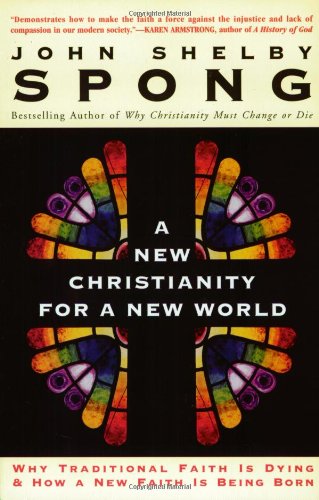
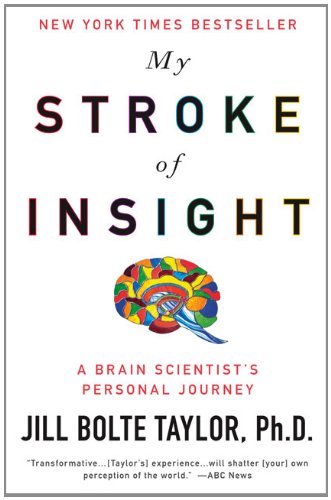
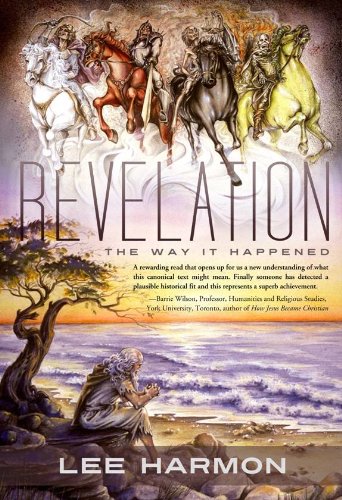
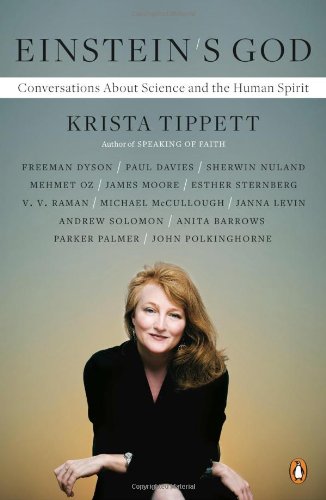
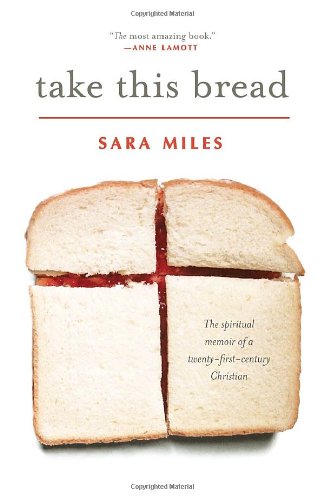









 354 Circles
354 Circles
 603 Goodreads Friends & Fans
603 Goodreads Friends & Fans

 Hello! I'm an author, historical Jesus scholar, book reviewer, and liberal Christian, which means I appreciate and attempt to exercise the humanitarian teachings of Jesus without getting hung up on any particular supernatural or religious beliefs.
The Bible is a magnificent book that has inspired and spiritually fed generations for thousands of years, and each new century seems to bring a deeper understanding of life’s purpose. This is true of not only Christianity; through the years, our age-old religions are slowly transforming from superstitious rituals into humanitarian philosophies. In short, we are growing up, and I am thrilled to be riding the wave.
I avidly read all thought-provoking religion titles. New authors: I'd love to read and review your book!
Hello! I'm an author, historical Jesus scholar, book reviewer, and liberal Christian, which means I appreciate and attempt to exercise the humanitarian teachings of Jesus without getting hung up on any particular supernatural or religious beliefs.
The Bible is a magnificent book that has inspired and spiritually fed generations for thousands of years, and each new century seems to bring a deeper understanding of life’s purpose. This is true of not only Christianity; through the years, our age-old religions are slowly transforming from superstitious rituals into humanitarian philosophies. In short, we are growing up, and I am thrilled to be riding the wave.
I avidly read all thought-provoking religion titles. New authors: I'd love to read and review your book!
 Hi! While Lee writes the articles and reviews the books, I edit, organize, and maintain the blog. The views expressed here are Lee's but I'm his biggest supporter! :-)
Hi! While Lee writes the articles and reviews the books, I edit, organize, and maintain the blog. The views expressed here are Lee's but I'm his biggest supporter! :-)
Connect With Me!